Whole family health centers offer a unique and comprehensive approach to healthcare, prioritizing the well-being of the entire family unit. This innovative model goes beyond traditional medical practices, emphasizing a holistic perspective that encompasses physical, mental, and emotional health for all family members.
By integrating various services under one roof, whole family health centers provide a convenient and accessible platform for families to address their diverse health needs. This integrated approach fosters a collaborative environment where healthcare professionals can work together to create personalized care plans tailored to each individual and family’s unique circumstances.
The Concept of Whole Family Health Centers
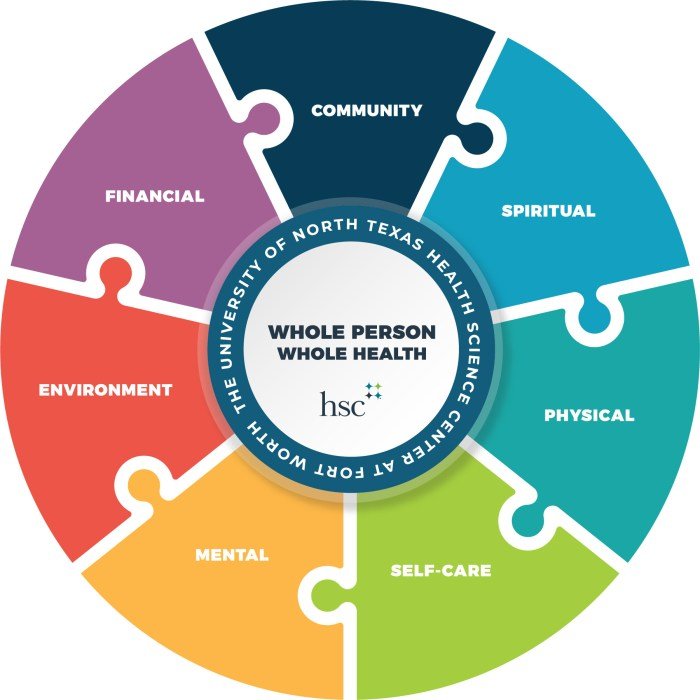
Whole family health centers are a unique approach to healthcare that emphasizes the interconnectedness of individual and family well-being. They aim to provide comprehensive medical, dental, and mental health services to all members of a family under one roof, fostering a collaborative and supportive environment.
The Philosophy of Whole Family Health Centers
Whole family health centers are rooted in the belief that health is not just the absence of disease but a state of complete physical, mental, and social well-being. They recognize that family dynamics, social determinants of health, and individual needs significantly impact overall health outcomes.
This philosophy guides their approach to care, prioritizing a holistic and integrated perspective.
Benefits of a Holistic Approach to Family Health
A holistic approach to family health offers numerous benefits. By considering the interconnectedness of family members, whole family health centers can:
- Improve communication and coordination of care: By having all family members under the care of one center, communication and coordination between providers are enhanced. This leads to better continuity of care, reduced duplication of services, and improved patient outcomes.
- Address health disparities: Whole family health centers often serve underserved communities with limited access to healthcare. By providing comprehensive services in a single location, they help bridge the gap in access and improve health equity.
- Promote preventive care: By focusing on the entire family, whole family health centers encourage proactive health management. They offer preventive services like screenings, vaccinations, and health education to reduce the risk of chronic diseases.
- Foster a sense of community: Whole family health centers create a supportive environment where families can connect with other families facing similar health challenges. This sense of community can empower individuals and families to take charge of their health.
Comparison with Traditional Medical Practices
Whole family health centers differ from traditional medical practices in several ways:
- Focus on the whole family: Unlike traditional practices that often focus on individual patients, whole family health centers prioritize the well-being of the entire family unit. They recognize that individual health is influenced by family dynamics, social support, and environmental factors.
- Integrated care: Whole family health centers offer a range of services under one roof, including medical, dental, mental health, and social services. This integrated approach ensures that all aspects of a family’s health are addressed in a coordinated manner.
- Emphasis on preventive care: Whole family health centers actively promote preventive care measures, such as screenings, vaccinations, and health education. They aim to identify health risks early and intervene before they develop into serious health issues.
- Community-based approach: Whole family health centers are often located in underserved communities and strive to address the unique health needs of their populations. They build strong relationships with community partners and work to improve access to healthcare for all.
Services Offered by Whole Family Health Centers
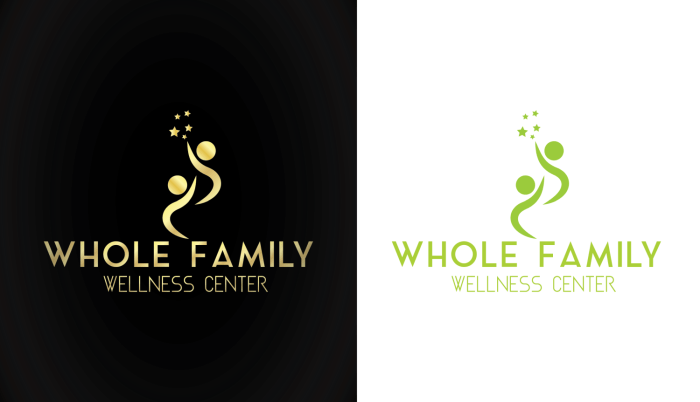
Whole family health centers provide a comprehensive range of healthcare services designed to meet the needs of individuals and families across all life stages. They offer a unique approach to healthcare by integrating primary care, preventive services, and specialized care under one roof, fostering a holistic and coordinated approach to well-being.
Services Offered by Whole Family Health Centers
Whole family health centers provide a comprehensive range of healthcare services, catering to the diverse needs of individuals and families across all life stages. These services are often organized into distinct categories, each encompassing a variety of specific offerings. The table below provides a comprehensive overview of the services typically offered by whole family health centers, along with their target age groups and associated benefits.
| Service Category | Specific Services | Target Age Groups | Benefits |
|---|---|---|---|
| Primary Care |
|
All ages |
|
| Preventive Care |
|
All ages, with specific services tailored to different stages of life |
|
| Mental Health Services |
|
All ages |
|
| Specialized Services |
|
All ages |
|
Benefits of Utilizing a Whole Family Health Center
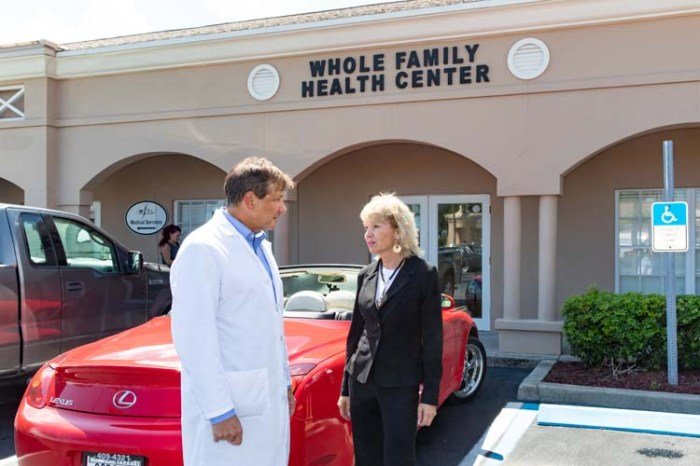
Whole family health centers offer numerous benefits for families, streamlining healthcare access and promoting overall well-being. These centers create a holistic approach to healthcare, addressing the needs of individuals across all stages of life within a single, convenient location.
Impact on Family Well-Being
A whole family health center fosters a supportive environment that benefits the physical, mental, and emotional health of all family members. By providing comprehensive care, these centers empower families to take control of their health and make informed decisions about their well-being.
A whole family health center offers a comprehensive approach to wellness, addressing the needs of every member. While focusing on physical health, it’s also important to consider the aspects of personal care, like trying out new beauty products. The allure beauty box provides a curated selection of cosmetics and skincare items, which can be a fun way to explore self-care.
Back at the health center, the focus remains on overall well-being, ensuring everyone receives the necessary support to thrive.
- Reduced Stress and Anxiety:Families can experience reduced stress and anxiety knowing that their healthcare needs are met in one place. This eliminates the need to navigate multiple providers and appointments, simplifying healthcare access and reducing potential confusion or delays.
- Improved Communication and Coordination:Whole family health centers facilitate improved communication and coordination between healthcare providers. This ensures that all members of the family receive consistent and comprehensive care, regardless of their individual needs.
- Enhanced Patient Education:These centers often provide comprehensive patient education programs that empower families to make informed decisions about their health.
Promoting Preventative Care and Early Intervention
Whole family health centers emphasize preventative care and early intervention, reducing the likelihood of chronic conditions and promoting long-term health.
- Regular Check-ups:Regular check-ups for all family members, from infants to seniors, help identify potential health issues early, when they are often easier to treat.
- Health Screenings:These centers provide access to a range of health screenings, including cancer screenings, immunizations, and blood pressure checks, enabling early detection and intervention for a wide range of conditions.
- Personalized Care Plans:By working with a team of healthcare professionals, families can develop personalized care plans that address their specific needs and risk factors.
Real-Life Examples
- The Johnson Family:The Johnson family, with two young children, found it challenging to manage multiple appointments for their children’s well-child visits, immunizations, and dental care. By enrolling in a whole family health center, they were able to consolidate their appointments, reducing travel time and stress.
The center also provided educational resources and support to help them navigate the complexities of childhood healthcare.
- The Rodriguez Family:The Rodriguez family, with a senior parent living with them, appreciated the comprehensive care provided by a whole family health center. They were able to access primary care, mental health services, and geriatric care all under one roof.
The center’s team of professionals helped them manage their parent’s chronic conditions and ensure their overall well-being.
Challenges and Opportunities for Whole Family Health Centers
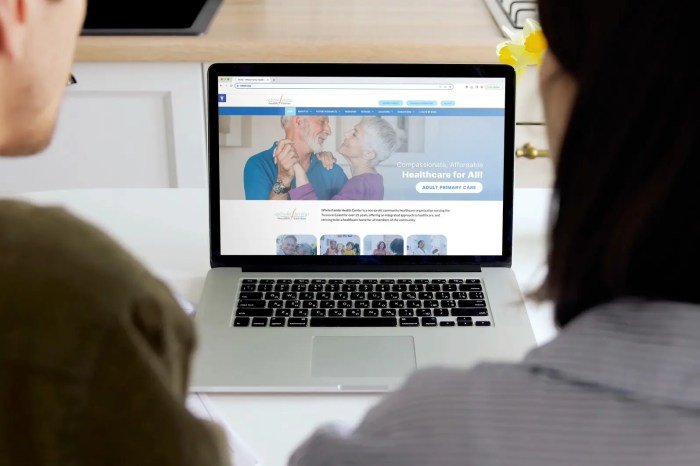
Whole family health centers, while offering numerous benefits, face unique challenges that can hinder their growth and effectiveness. Understanding these challenges and exploring potential solutions is crucial for the continued success of these centers. This section will examine the key challenges faced by whole family health centers, explore potential solutions to overcome these challenges, and discuss future opportunities for growth and expansion.
Challenges Faced by Whole Family Health Centers
Whole family health centers face various challenges, including financial sustainability, staffing shortages, and limited access to specialized care. These challenges can significantly impact the quality and accessibility of care provided to patients.
- Financial Sustainability:Whole family health centers often operate on a limited budget, relying heavily on government grants and reimbursements. This can make it difficult to maintain financial stability, especially in areas with a high concentration of low-income patients.
- Staffing Shortages:Finding and retaining qualified healthcare professionals, particularly in rural or underserved areas, can be challenging. The shortage of primary care physicians, nurses, and other healthcare professionals can lead to longer wait times, limited access to care, and burnout among existing staff.
Whole family health centers offer comprehensive care, addressing the needs of everyone from newborns to seniors. This holistic approach, however, necessitates careful consideration of patient privacy, a crucial aspect of healthcare. To learn more about the intricacies of healthcare privacy, particularly in the context of family health centers, visit this informative article on health care privacy part 1.
Understanding these guidelines is essential for maintaining trust and ensuring sensitive information remains protected within the family health center setting.
- Limited Access to Specialized Care:While whole family health centers provide a wide range of primary care services, they may not have access to specialized care, such as mental health services, dental care, or ophthalmology. This can necessitate referrals to outside providers, which can be time-consuming and inconvenient for patients, especially those without reliable transportation.
Solutions to Overcome Challenges
Addressing the challenges faced by whole family health centers requires innovative solutions and collaborative efforts. These solutions can enhance financial stability, improve staffing levels, and expand access to specialized care.
- Diversification of Revenue Streams:Whole family health centers can explore alternative revenue streams, such as offering wellness programs, community outreach services, or partnerships with private insurance providers. This can help reduce reliance on government funding and create a more sustainable financial model.
- Investment in Workforce Development:Investing in training programs for healthcare professionals, offering competitive salaries and benefits, and creating supportive work environments can attract and retain qualified staff. This can also include programs to support the recruitment and training of local residents in healthcare fields, fostering a pipeline of future healthcare professionals.
- Expanding Partnerships:Collaboration with other healthcare providers, community organizations, and local businesses can help address gaps in specialized care. This can involve establishing telehealth programs, sharing resources, and developing referral networks to ensure patients have access to the care they need.
Opportunities for Growth and Expansion
Despite the challenges, whole family health centers have significant opportunities for growth and expansion. These opportunities can enhance their impact on the communities they serve and improve the overall health and well-being of patients.
- Increased Demand for Primary Care:The aging population and rising rates of chronic diseases are driving an increased demand for primary care services. Whole family health centers are well-positioned to meet this growing need, offering comprehensive and accessible care to a wider range of patients.
Whole family health centers provide comprehensive care for everyone in the household, from newborns to grandparents. These centers often partner with organizations like the Charles Drew Health Center to expand their reach and offer specialized services. By working together, these organizations ensure that all members of the community have access to the care they need, regardless of their age or health status.
- Technological Advancements:Telehealth and other technological advancements can enhance access to care, improve patient engagement, and reduce costs. Whole family health centers can leverage these technologies to expand their reach and provide more convenient and efficient care.
- Focus on Health Equity:Whole family health centers are committed to providing equitable access to healthcare, regardless of socioeconomic status or insurance coverage. This focus on health equity aligns with the growing national emphasis on addressing health disparities and promoting health equity for all.
Finding and Choosing a Whole Family Health Center
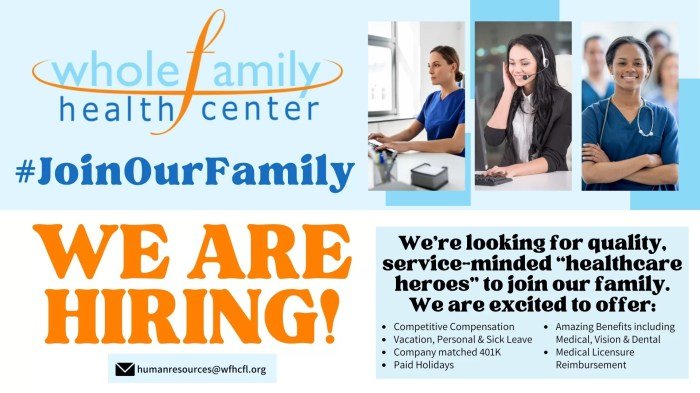
Finding the right whole family health center for you and your family can be a crucial step in ensuring everyone receives the care they need. It’s important to consider several factors to make an informed decision that aligns with your family’s needs and preferences.
Factors to Consider When Selecting a Whole Family Health Center
Choosing a whole family health center involves considering various aspects that directly impact your family’s healthcare experience. Here are some key factors to consider:
- Location and Accessibility:Proximity to your home or work, convenient hours of operation, and ease of transportation are essential for regular visits and emergency situations.
- Insurance Coverage:Verify if the center accepts your insurance plan and understand any co-pays or deductibles associated with services.
- Services Offered:Ensure the center provides the full range of services your family requires, including preventive care, chronic disease management, mental health services, and specialized care for children and seniors.
- Provider Experience and Expertise:Research the qualifications and experience of the doctors and other healthcare professionals at the center, including their specialties and areas of focus.
- Patient Satisfaction and Reviews:Explore online reviews and testimonials from other patients to gauge the center’s reputation, quality of care, and overall patient experience.
- Communication and Customer Service:Assess the center’s communication channels, responsiveness to inquiries, and overall customer service quality.
- Cultural Sensitivity and Diversity:If your family has specific cultural or linguistic needs, ensure the center provides culturally competent care and language support services.
- Technology and Innovation:Consider the center’s adoption of modern technology for appointment scheduling, electronic health records, and other services that enhance convenience and efficiency.
- Community Involvement and Outreach:Explore the center’s commitment to community health initiatives, outreach programs, and partnerships that demonstrate their dedication to improving the well-being of their patients.
Tips for Researching and Evaluating Potential Centers
To make a well-informed decision, it’s essential to conduct thorough research and evaluation of potential whole family health centers. Here are some tips to guide your process:
- Start with Online Research:Utilize online directories, health websites, and search engines to identify potential centers in your area.
- Read Reviews and Testimonials:Explore online reviews and testimonials from other patients to gain insights into the center’s reputation, quality of care, and overall patient experience.
- Contact the Center Directly:Reach out to the center by phone or email to inquire about their services, hours of operation, and insurance coverage.
- Schedule a Tour:Request a tour of the center to get a firsthand look at the facilities, meet the staff, and assess the overall environment.
- Ask Questions:Prepare a list of questions to ask during your tour or initial consultation to gather information about the center’s philosophy, services, and patient care practices.
Questions to Ask Potential Centers During an Initial Consultation
Asking the right questions during your initial consultation is crucial for gathering essential information and assessing the center’s suitability for your family. Here are some questions to consider:
- What is the center’s philosophy of care?
- What services does the center offer?
- What are the center’s hours of operation?
- Does the center accept my insurance plan?
- What are the co-pays and deductibles associated with services?
- What are the center’s procedures for scheduling appointments?
- How does the center handle emergencies?
- Does the center offer language support services?
- What are the center’s policies on patient privacy and confidentiality?
- How does the center ensure patient satisfaction?
- Does the center participate in any community health initiatives?
Outcome Summary

The concept of whole family health centers is gaining momentum as individuals and families seek a more holistic and integrated approach to healthcare. By addressing the needs of the entire family, these centers promote better communication, stronger family bonds, and improved overall well-being.
As these centers continue to evolve and expand, they hold immense promise for transforming the healthcare landscape and empowering families to live healthier and happier lives.
FAQ Corner
What are the benefits of using a whole family health center?
Whole family health centers offer numerous benefits, including increased convenience, improved communication between healthcare providers, and a holistic approach to family well-being. They also promote preventative care and early intervention, leading to better health outcomes for the entire family.
How do I find a whole family health center near me?
You can search online directories, contact your local health department, or ask for recommendations from your primary care physician. You can also look for centers that are accredited by reputable organizations.
What are the costs associated with using a whole family health center?
The costs associated with whole family health centers vary depending on the services you require and your insurance coverage. It’s best to contact the center directly to inquire about their fees and payment options.